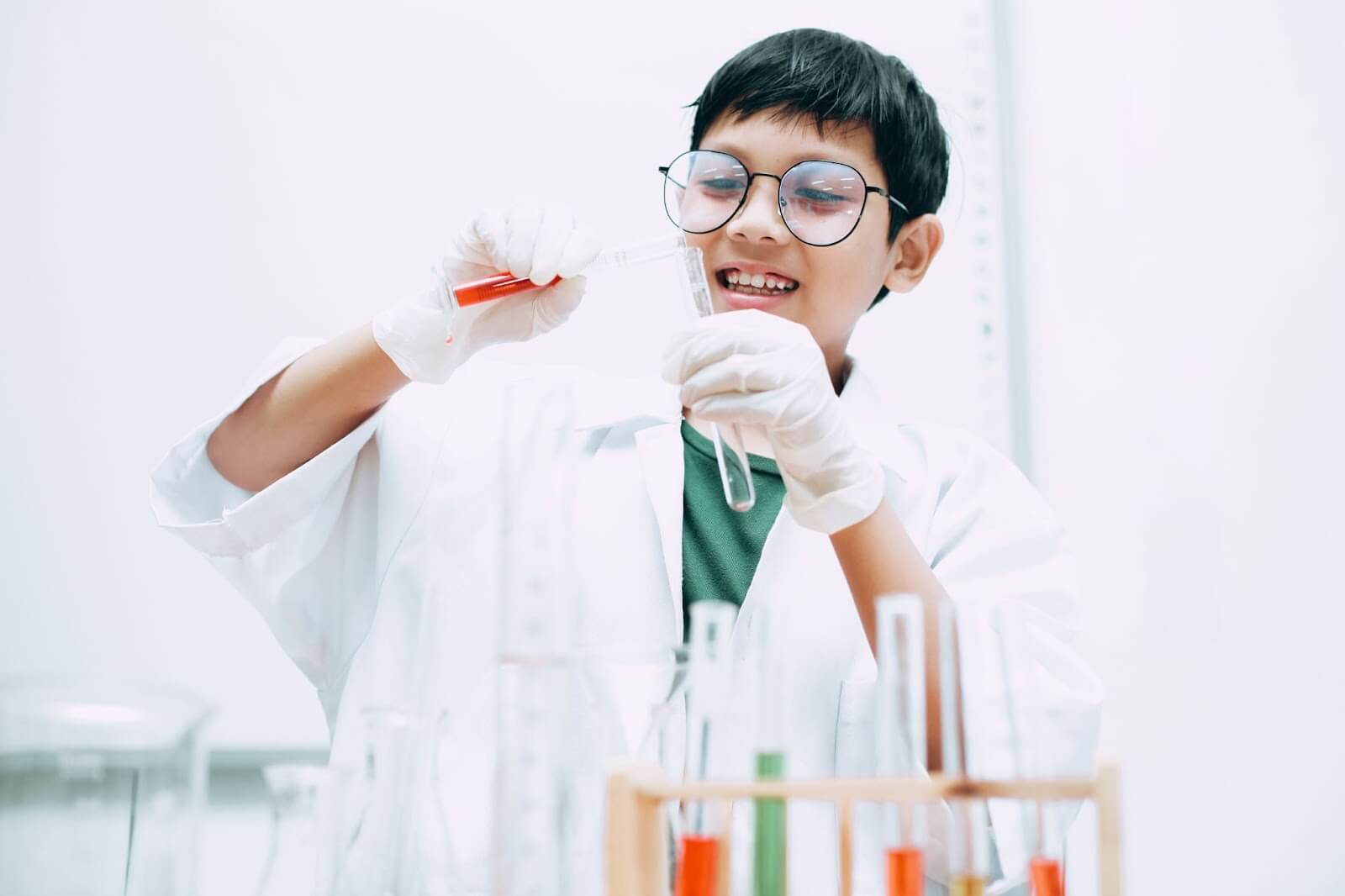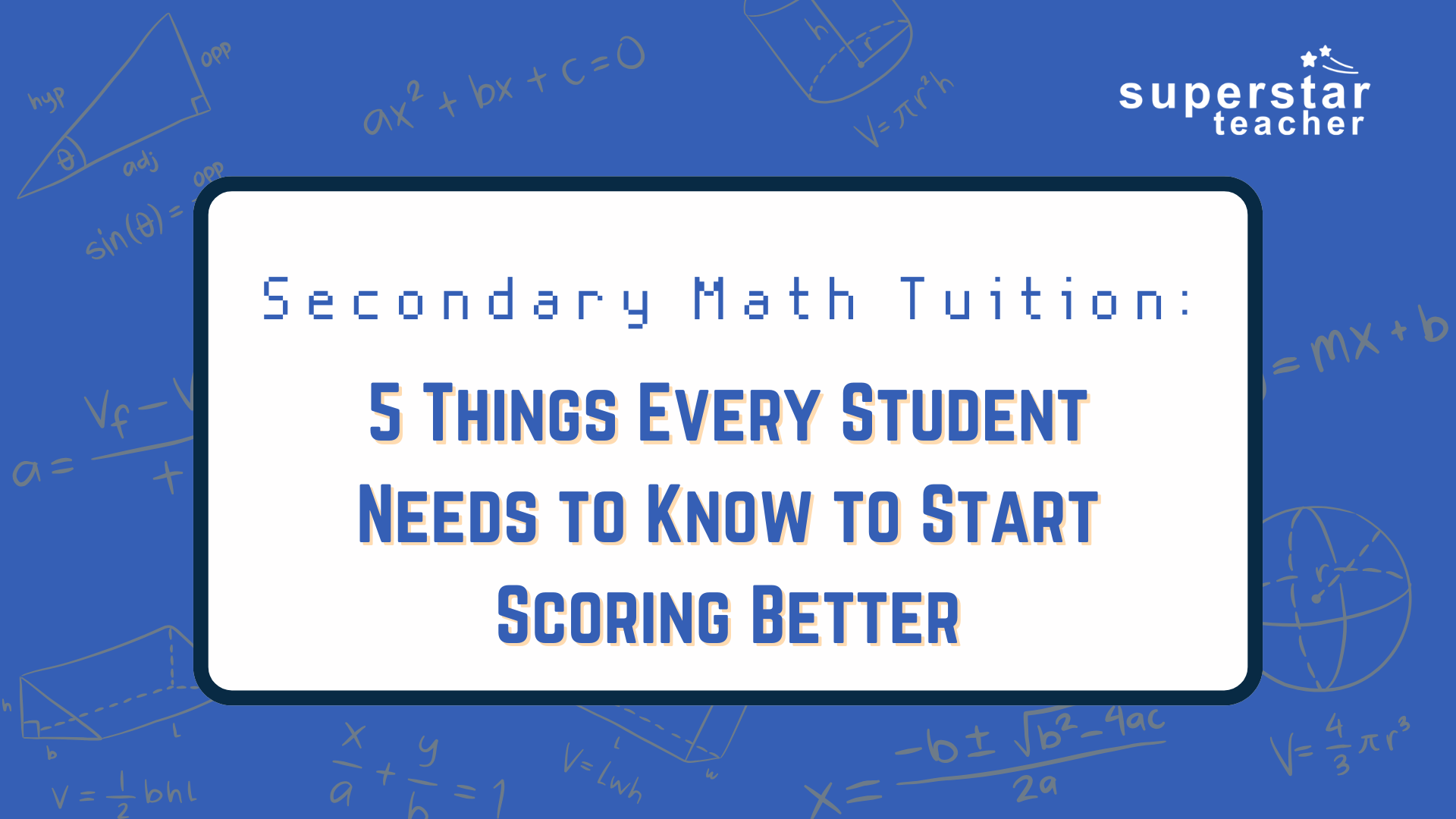Secondary School Biology, Chemistry or Physics: Which to Take?

Towards the end of Secondary 2, your child will need to decide if they want to take Biology, Physics and/or Chemistry in upper secondary levels. They will also need to choose between pure science and combined science as part of their subject combination.
Difference between pure science and combined science
For some, science can be a challenging subject to do well in, requiring not only a solid understanding of core concepts but also the ability to apply these concepts meaningfully in various scenarios described in exam questions. By this time, your child would have learnt topics pertaining to diversity, models, interactions and systems. They may know their strengths and weaknesses in science as well as whether it is a subject they enjoy. With this in mind, it is crucial for your child to think carefully about their subject combination. If your child opts for the path of pure science, they can select two or all three of the science subjects.
On the other hand, your child may choose combined science whereby the combinations can be any one of the following:
- Biology and Chemistry
- Chemistry and Physics
- Physics and Biology
Pure science covers a wide range of topics and offers a more in-depth exploration of the concepts in each subject area. Conversely, combined science teaches several key components of Biology, Chemistry and/or Physics and is counted as a single subject. Either way, your child has to have confidence in the subjects they take as the final O-Level or N-Level results will determine their next step in tertiary education. Junior college, in particular, will require the relevant pure sciences in order to study H2 science subjects.
Here’s a quick overview of what your child will learn if they are taking Pure Biology, Chemistry and Physics.
What will your child learn in:
Biology
In Secondary 3, your child will learn more about:
- Cells
- Movement of substances
- Nutrients
- Enzymes
- Nutrition in plants and humans
- Transport in plants and humans
- Respiration
- Excretion
- Homeostasis
In Secondary 4, the following topics will be covered:
- Coordinators of response
- Cell division
- Reproduction in plants and humans
- Inheritance
- Molecular genetics
- Ecology
In this lesson snippet, our Biology teacher Mr Roy Teo delves deeper into the topic of Molecular Genetics by sharing how vaccines work through protein synthesis.
Chemistry
In Secondary 3, your child will learn more about:
- Atomic structure
- Chemical bonding
- Acids and bases
- Salts and identification of ions
- Oxidation and reduction
- Writing chemical equations, mole concept and chemical calculations
- Stoichiometry
- Kinetic particle theory
- Measurement and experimental techniques
- Separation and purification
In Secondary 4, the following topics will be covered:
- Metals
- Periodic table
- Electrolysis
- Energy changes
- Speed of reaction
- Ammonia
- The atmosphere and environment
- Introduction to organic chemistry
- Alkanes and alkenes
- Alcohols and carboxylic acids
- Esters and isomerisms
- Macromolecules
- Enthalpy changes
Here is Teacher Selena See sharing more about the Kinetic Particle Theory.
Physics
In secondary 3, your child will learn more about:
- Measurements
- Scalars and vectors
- Kinematics
- Forces and dynamics
- Mass, weight and density
- Turning effect of forces
- Energy, work and power
- Pressure
- Temperature
- Kinetic model of matter
- Transfer of thermal energy
- Thermal properties of matter
- Light
- General wave properties
In secondary 4, the following topics will be covered:
- Static electricity
- Current electricity
- DC circuit
- Practical electricity
- Magnetism
- Electromagnetism
- Electromagnetic induction
- Electromagnetic waves
- Sound
Watch the clip below to see how Teacher Oh Ming Yeo demonstrates and introduces the topic on Friction.
Be prepared
In a nutshell, your child will be faced with an even more rigorous academic curriculum as they work towards preparing for their O-level or N-level exam. To help your child keep up with the secondary school science syllabus, consider Superstar Teacher’s online learning platform in Singapore.
The above-mentioned topics are all covered in our lessons. Here at Superstar Teacher, we break down complex topics into manageable parts, making them easier to understand and process. In addition, we use interactive teaching methods that help students connect with the material on a deeper level. Through our online tuition classes, students gain confidence in their abilities and are better able to excel in Biology, Chemistry and Physics. On top of our range of resources, your child may also reach out to our tutors online via the Instant Homework Help tool. Create a parent account to start exploring our platform.



